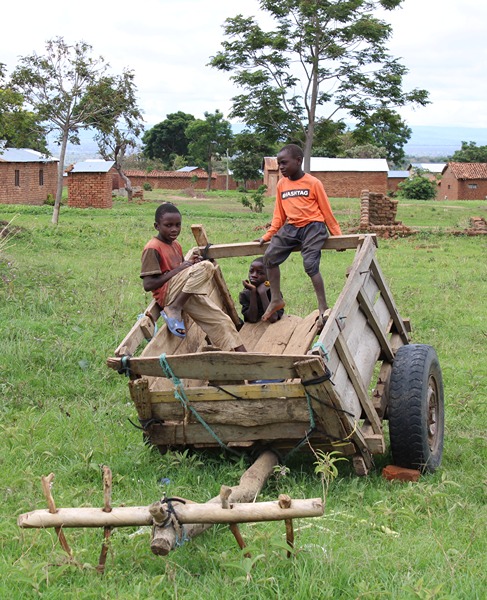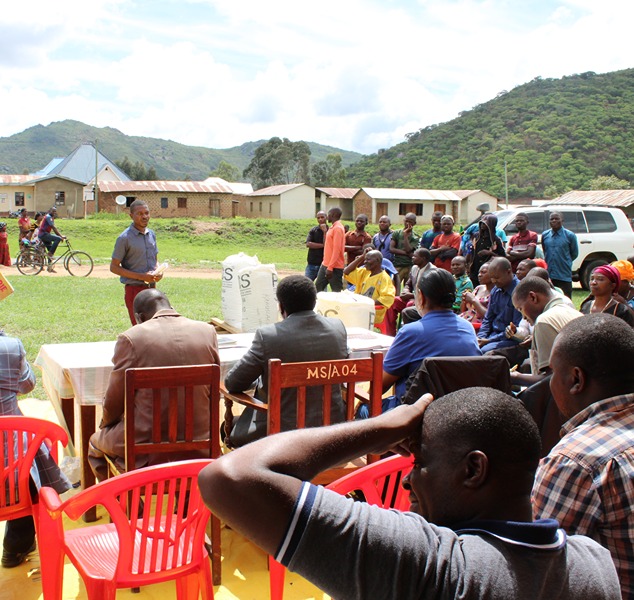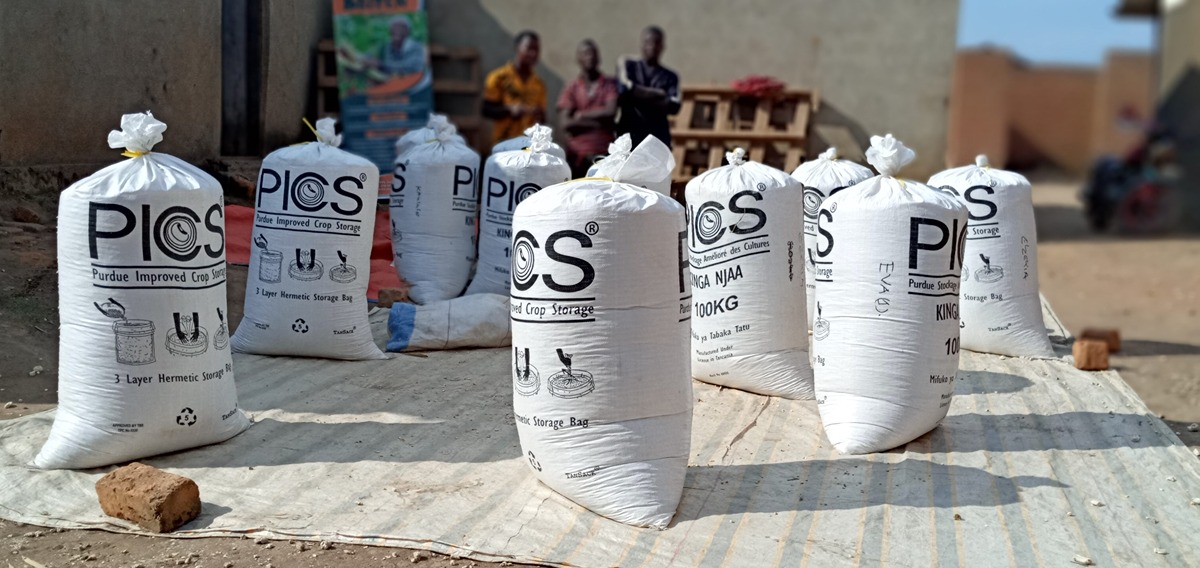CASH-Tz: improving access to safe grain storage in Tanzania
Fighting food insecurity isn’t as simple as growing more food. One of the biggest hurdles for countries on the path to alleviating hunger is actually what to do with surplus grain after harvest. Grain that is not sold or eaten immediately, nor stored properly, is vulnerable to insects and fungi that reduce the quality of the food and can even release dangerous toxins.
Dieudonne Baributsa, a professor in Purdue’s Department of Entomology, understands that solutions to problems in international agriculture are complex. He is involved in one of the most successful programs in the history of Purdue’s College of Agriculture: Purdue Improved Crop Storage (PICS) bags. The triple-layered PICS bags provide affordable and effective storage protection for several different crops by creating an airtight seal that suppresses insect pests’ development.
Baribusta, along with partners in Tanzania, started the Expanding Credit Access to Scale-up the Use of Hermetic Storage in Tanzania (CASH-Tz) Program to improve access to finance at harvest and increase the adoption of PICS bags in Tanzania.
In Tanzania, farmers tend to sell grain soon after harvest to pay for their family’s living expenses and repay input loans that they had taken out at the beginning of the growing season to pay for supplies like seeds and fertilizer. With maize supply high right after harvest, growers often sell their grain at the lowest price point of the year. This unfortunate trend was a cycle that perpetuated poverty among farmers in Tanzania.
input loans that they had taken out at the beginning of the growing season to pay for supplies like seeds and fertilizer. With maize supply high right after harvest, growers often sell their grain at the lowest price point of the year. This unfortunate trend was a cycle that perpetuated poverty among farmers in Tanzania.
“At some point, we realized that we were missing a crucial part of the value chain,” Baributsa shared. “We were focusing on helping smallholder farmers, but there was an opportunity to leverage across the value chain to increase the adoption of PICS bags for income generation.”
CASH-Tz, a USAID-funded project, planned to help increase farmer’s access to finance through a collateral management agreement (CMA), so they could afford to store their grain in PICS bags and sell it when prices were higher. The CMA involved a partnership between farmers, banks and grain buyers.
Under the CMA, farmers would aggregate their grain in warehouses and store it in PICS bags, and the banks would give them 60% equivalence of that maize’s worth at harvest. This payment from the bank would help farmers repay past loans and cover their family’s needs. A few months later, when the market offered higher prices, the banks would sell the stored grain to grain buyers, recoup their 60% loan plus interests and give the remaining balance back to the farmers.
 In the initial phase of the CASH-Tz project, starting in 2021, trained extension agents reached out to producers’ organizations to demonstrate the CMA concept to farmers, while private sector partners spread the word by creating promotional materials for radio and social media.
In the initial phase of the CASH-Tz project, starting in 2021, trained extension agents reached out to producers’ organizations to demonstrate the CMA concept to farmers, while private sector partners spread the word by creating promotional materials for radio and social media.
Tanzania experienced severe drought in 2022. That, and the war in Ukraine, led to a low supply of grain in East Africa, resulting in soaring maize prices at harvest. Tanzanian farmers seized the opportunity to sell their grain at record prices, despite knowing that the prices were likely to increase later in the season.
These issues, in addition to internal challenges involving delayed bank payments and additional collateral requirements, made it difficult for the CASH-Tz program to accomplish its original goals. However, Baributsa and partners realized that there was still an opportunity to increase adoption of PICS bags among farmers through village demonstrations.
As a team, they decided to target 500 rural villages in the regions of Ruvuma and Rukwa. In Ruvuma alone, 258 villages and 11,757 people received training. 45% of these participants were women. From 2022 to 2023, these activities increased sales of PICS bags by 172.7%.
Baributsa is excited by the resilience of the program. “We learned a lot. We also spread awareness that resulted in increasing the sales of PICS bags.”







